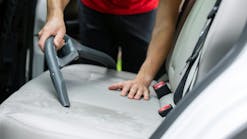Guest blog: Stop ‘selling’ additional repair work, start fostering trust
It’s time to change the way we write service and especially how we handle the call to the customer about the additional work needed. We’ve been doing it the same for 30 years. We currently “sell” way too much. In my 40 years in the biz, I’ve worked at five shops where I’ve learned what to do, and sometimes, what not to do.
Like most service advisors, I started out as a mechanic. After about 10 years, I got restless. I went back to school and got my degree in speech communication. During that time, I worked part time as a mechanic. After finishing school, I became a service advisor, which I loved because it fit me – I’m a people person.
I gradually started applying many of the things I learned from my speech degree: active listening, persuasion, negotiation, non verbal communication, conflict resolution, emotional intelligence, and from sales, the presumptive close. And that changed everything. Soon it became easy to get approvals on the additional work needed on the customers. Plus the customers loved me. My aim is to help you or your service advisor to do the same.
Lack of trust
It’s no wonder a lot of people are skeptical of our industry and are lacking all important trust. I recently talked with two auto parts sales reps at an industry event. They had cars worth $4,000 and $5,000, respectively, and after an oil service, got repair estimates of $5,000 and $6,000. I see that as a misuse of digital inspections or blindly following time-honored “rules.” Or treating the customer like an ATM machine. That shows no regard for the customer.
We need to deal with the customer in a holistic fashion, taking into account their wants, needs, skepticism, need for control, dislike for being sold, and their decision making process, versus using old-school, generic selling. Traditionally, we’re taught to sell benefits, value and safety. And if they don’t buy, we launch into our training on dealing with objections! Theoretically though, were not selling anything: the car needs it. Except in those stories above.
Personally, I explain what needs to be done in three categories: what needs to be done now and why, what else could be done now and why, and what can wait a while. It’s a group decision with the customer and me, it’s their money and their car. Shouldn’t it be a group decision? Pro tip: If you tell them the stuff can wait two or three months, nobody wants to bring their car back in a month. They usually say, “Just do it now.”
Customers need some control in the transaction/situation; not “sold” into it. I explain what their car needs, how it works and why it needs it. No selling, just explaining – how can they say no to explaining? The customer needs that knowledge to arrive at the same solution to their car issues, hence a good explanation.
Importance of building trust
Trust truly is the one thing that changes everything. Trust grows when our motives are straightforward and based on mutual benefit. In other words, when we genuinely care not only for our shop but for our customers as well. After trust is established, they realize you have their best interest in mind.
If your (new) service advisor used to be a technician, he or she is used to things being straightforward: you do this to a car, this is what happens, almost every time. So they figure the customer will be the same: tell them what their cars needs and they will naturally say yes. But people don’t always make the best decisions. Sometimes they simply want to say no, just to be in control. Sometimes it a game just to beat the service advisor.
Getting that easy yes is because of trust and the relationship. The customers trust that I’ll take care of them. I’m the “friend” who looks out for their best interest. We talk about everything, including their parent in a nursing home. It makes for easy phone calls and fun days. And after all that, they still know I have to make a profit.
Relationships are much more appealing to customers than parts or services are. Create a “we” relationship in which your customer sees you as a collaborative partner. I seldom text pictures of the repair. They trust me. If I text pictures and videos, it’s to explain, not to sell, not to justify. What your customer feels about his or her relationship with you forms the foundation of how they view your parts and services.



